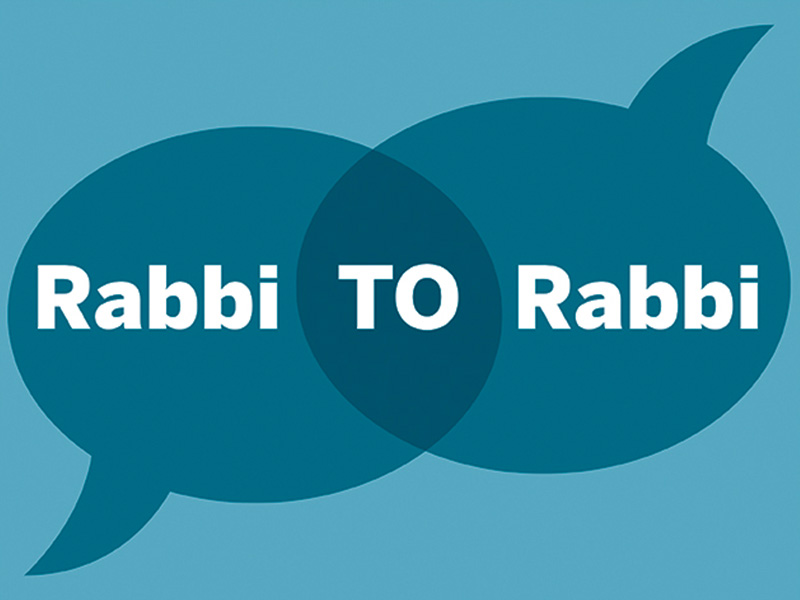We must honour survivors, mourn the victims and proudly proclaim “Never again,” all while continuing to grow a living Judaism
Rabbi N. Daniel Korobkin
Beth Avraham Yoseph Congregation, Toronto
Rabbi Lisa Grushcow
Temple Emanu-El-Beth Sholom, Montreal
Rabbi Grushcow: The Holocaust and the founding of the State of Israel have been pillars of Jewish education for decades. We have taught our children that these two events are fundamental to their Jewish identities. But we are seeing less engagement with Israel in younger generations and an increasing distance from the experience of the Holocaust as well. I think we risk oversimplifying Judaism by restricting focus to these two aspects.
Emil Fackenheim wrote that the 614th commandment is to avoid giving Hitler a posthumous victory. But I don’t think that the memory of the Holocaust in and of itself will motivate substantive Jewish choices. How can we make sure to hear the stories of the survivors and honour them, mourn the victims and proudly proclaim “Never again,” all while continuing to grow a living Judaism?
Rabbi Korobkin: The last generation of survivors is gradually aging and passing on, and this has changed the entire paradigm of Holocaust studies. So it’s not surprising that some of our youth might be less than enchanted with Holocaust studies. At the same time, new innovations are making the Shoah more relevant to today’s youth. Projects like Facing History introduce the Holocaust through a contemporary lens of racism, prejudice and how evil stealthily and insidiously comes to prominence within society.
The dichotomy you present of choosing between remembering our past and moving forward with a living Judaism doesn’t resonate with me. Not only is there no contradiction between the two, the very key to our future has always been through connecting with our past.
While Fackenheim may have overstated the role of the Holocaust in Jewish life, it is nonetheless a vital component. Not only do we honour the six million by remembering them, but we also provide more texture and context to the Judaism of today by connecting it to the world of European Jewry before the Shoah.
Rabbi Grushcow: I believe deeply in the importance of the past to the present, and forward into the future. But your believing it and my believing it does not necessarily make it resonate with others, especially those who are farther removed.
Rashi, in his famous comment on the first verse of Genesis, asks why the Torah begins with stories. Why not simply begin with the laws? Because, he says, the stories give a context for the laws.
The most effective Holocaust education puts stories in the foreground. I am thinking, for example, of the survivors who share their stories with our bnei mitzvah students at the Montreal Holocaust Memorial Centre, or how our confirmation class learns about individual lives for our Yom Hashoah service each year. It doesn’t mean we ignore the bigger context, which is critical. It does mean that we search for the lens that helps our students relate.
At the same time, the Shoah is one chapter in a much longer history. I want our students to know about Rashi and Gluckl of Hamelin, Rabbi Yochanan Ben Zakkai and Beruriah, Shabtai Zvi and Regina Jonas. I want our students to know the stories of Sephardi communities as well as Ashkenazi ones, and about Jews from Africa and Asia as well as Europe. We need to keep telling the story of the Shoah. We need to acknowledge evil to keep it from happening again – and not only to us, but to anyone. And we need to make room for many stories, so every Jewish child can see themselves in our past, and see their way into our future.
Rabbi Korobkin: I agree that we can’t sacrifice the pantheon of Jewish history for the Holocaust. But as a child of a survivor, my view may be biased. The Holocaust is unrivalled by any other event in Jewish history because of the sheer magnitude of genocide and devastation to whole communities and cultures.
Its uniqueness to our history – indeed, to world history – demands that we treat it uniquely and with greater emphasis. So I’m willing to tolerate the rolled eyes of some millennials if it means that we might get through to others.
The Shoah’s impact, both on our past and our future, is too important to consign to yet another iteration of Jewish suffering. As we see the new anti-Semitism of the 21st century intensifying, we can’t afford to do any less.
